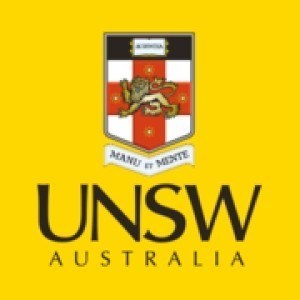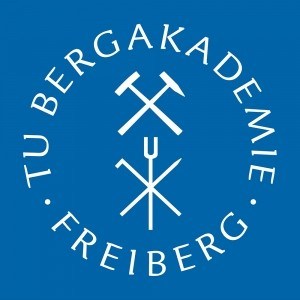The Mining and Metallurgical Engineering (Research) program at Curtin University is a prestigious postgraduate pathway designed for individuals seeking advanced knowledge and expertise in the fields of mining and metallurgical engineering. This research-based program offers students the opportunity to engage in cutting-edge projects that address real-world challenges faced by the mineral resources sector. Through rigorous investigation, innovative problem-solving, and experimental work, students can contribute to the development of sustainable techniques for mineral extraction, processing, and metallurgical refining. The program is tailored for graduates with backgrounds in engineering, geology, materials science, or related disciplines who aspire to become leaders in the mining industry, academia, or research institutions. Students will have access to state-of-the-art laboratories, specialized equipment, and expert supervision to facilitate their research endeavors. The curriculum emphasizes the application of scientific principles to optimize resource recovery, improve environmental management, and promote safety standards within the industry. Collaborations with industry partners provide practical insights and opportunities for internships, enhancing the student’s professional network and readiness for the workforce. The program culminates in a research thesis that demonstrates the student’s ability to independently conduct significant scientific investigations and contribute valuable knowledge to the field. Graduates of the Mining and Metallurgical Engineering (Research) program at Curtin University are well-equipped to pursue careers in resource development, environmental consulting, research and development, or continue their studies towards a PhD. With a strong focus on innovation, sustainability, and technical excellence, this program prepares students to meet the evolving demands of the global mining industry and contribute to sustainable resource management worldwide.
Mining and Metallurgical Engineering (Research) at Curtin University offers a comprehensive and rigorous postgraduate program designed to equip students with advanced knowledge and skills in the fields of mineral extraction, processing, and metallurgical techniques. This research-focused degree provides an opportunity for students to engage in innovative projects that address contemporary challenges in mining and metallurgy, supported by state-of-the-art laboratories and research facilities. The program emphasizes both theoretical understanding and practical application, preparing graduates for careers in industry, research institutions, and academia.
Throughout the program, students undertake extensive independent research supervised by leading experts in the field. The curriculum includes coursework in areas such as mineral processing, extractive metallurgy, mineral exploration, geometallurgy, and sustainable mining practices. This coursework lays a solid foundation for the research component, where students develop and execute a thesis project that contributes new insights and solutions to key technological and environmental issues facing the mining sector.
The program is ideal for students holding a relevant undergraduate degree who wish to deepen their expertise through research. It promotes critical thinking, problem-solving, and innovation, fostering skills necessary to lead technological advancements and improve resource efficiency. Collaborative projects with industry partners are often part of the research process, offering students valuable practical experience and valuable networks for future employment.
Graduates of the Mining and Metallurgical Engineering (Research) program will be well-prepared to pursue careers in resource extraction companies, processing industries, research organizations, and government agencies. They will have the ability to conduct cutting-edge research, develop new metallurgical processes, optimize mineral extraction techniques, and contribute to sustainable mining practices. Through their research, students also aim to contribute to the global efforts in environmental protection and resource management.
Curtin University’s strong focus on industry-relevant research and innovation, combined with its reputation for excellence in engineering education, makes this program a distinctive choice for those seeking to advance their careers in the dynamic and vital field of mining and metallurgy.
Program requirements for the Master of Science in Mining and Metallurgical Engineering (Research) at Curtin University typically include the completion of coursework units, a research thesis, and adherence to admission criteria. Applicants usually hold a relevant undergraduate degree such as a Bachelor of Engineering, Mining Engineering, Metallurgical Engineering, or an equivalent qualification with a strong academic record. They may also need to provide proof of English language proficiency, such as an IELTS score of 6.5 overall with no band less than 6.0, or equivalent. The program generally requires students to undertake a combination of coursework and research components, with the research thesis accounting for a significant portion of the degree. The coursework units are designed to provide advanced knowledge in mining methods, mineral processing, metallurgical processes, and sustainable practices within the industry. The research component involves original investigation into a specific area of mining or metallurgical engineering, supervised by faculty members with expertise in the field. Students are expected to develop a research proposal, conduct literature reviews, undertake experimental or theoretical investigations, analyze data, and produce a comprehensive thesis demonstrating their findings. To qualify for graduation, students must successfully defend their thesis in an oral examination and submit all required academic forms. The program duration typically ranges from 1.5 to 2 years of full-time study, though part-time options may also be available. Additional requirements such as relevant work experience or a statement of research interests may enhance an applicant's application. The program aims to prepare graduates for research, development, and professional roles within the mining and metallurgical sectors, emphasizing innovation, sustainable practices, and advanced technical skills. Throughout the program, students are encouraged to publish their research in scholarly journals and attend relevant industry conferences, fostering professional development and industry connections.
The Master of Mining and Metallurgical Engineering (Research) at Curtin University offers various financing options to support students throughout their studies. International students may be eligible for scholarships, which can significantly offset tuition fees and living expenses. Scholarships such as the International Research Tuition Scholarship are awarded based on academic merit and research potential, providing fee reductions or full coverage for tuition. Domestic students may access government funding programs, including the Commonwealth supported places or research training program stipends, depending on eligibility and country of residence. Curtin University also facilitates access to study loans and financial aid packages through national and state government schemes, allowing students to manage tuition payments more flexibly. Additionally, many students choose to finance their studies through personal savings, family support, or part-time employment, with the university's campus facilities and local industry links providing opportunities for relevant part-time work to help offset costs. The university's cost of living estimates for students include accommodation, food, transport, and other personal expenses, which should be factored into financial planning. International students should also consider expenses related to health insurance, visa fees, and travel, which are separate from tuition costs. Curtin University offers financial counselling services to assist students in planning their budgets and exploring funding options effectively. Moreover, some students may qualify for research grants or industry-sponsored fellowships, particularly if their research aligns with industry priorities. The duration of the program, typically two years for full-time students, influences overall funding needs and planning. It is advisable for prospective students to explore all possible avenues of financial support early in the application process to ensure adequate preparation for the financial commitments involved in postgraduate research studies at Curtin University.
The Master of Philosophy (Research) in Mining and Metallurgical Engineering at Curtin University is a postgraduate research degree designed for students seeking advanced knowledge and specialization in the fields of mining and metallurgical processes. This program provides students with the opportunity to undertake in-depth research under the supervision of experienced academics, contributing original knowledge to the field. Students engaged in this research are typically involved in projects that address current challenges in mining operations, mineral processing, metallurgy, sustainable mining practices, and innovative extraction techniques. The program emphasizes developing strong research skills, scientific writing abilities, and analytical thinking, which are essential for careers in academia, industry, or government agencies involved in resource development and management.
The coursework component of the program usually involves comprehensive training in research methodologies, data analysis, and technical writing, preparing students for the demands of rigorous scientific investigation. The research focuses can include topics such as mineral beneficiation, extractive metallurgy, environmental impacts of mining, resource recovery, and process optimization. The program duration varies depending on whether students are enrolled full-time or part-time, but typically it takes approximately 2 years of full-time study to complete. Students are expected to produce a thesis based on their original research work, which is then examined by internal and external experts for quality and originality. Successful candidates may go on to pursue careers as research scientists, technical consultants, academic faculty, or industry specialists in mining and metallurgical engineering.
Curtin University is recognized for its strong links with industry and its commitment to innovation in the resource sector, providing students with access to cutting-edge facilities and professional networks. The university's research-intensive environment encourages collaboration across disciplines and emphasizes practical applications of research findings. Graduates of the program often benefit from the university’s extensive industry partnerships, which can facilitate internships or research funding opportunities. The program is ideal for students with a background in engineering, geosciences, or a related discipline who wish to deepen their expertise and contribute to advancements in the field of mining and metallurgical engineering on a research basis. Overall, the Master of Philosophy (Research) offers a comprehensive pathway for those aiming to develop specialized research skills and make meaningful contributions to the sustainable development of the mining and metallurgical industries.









